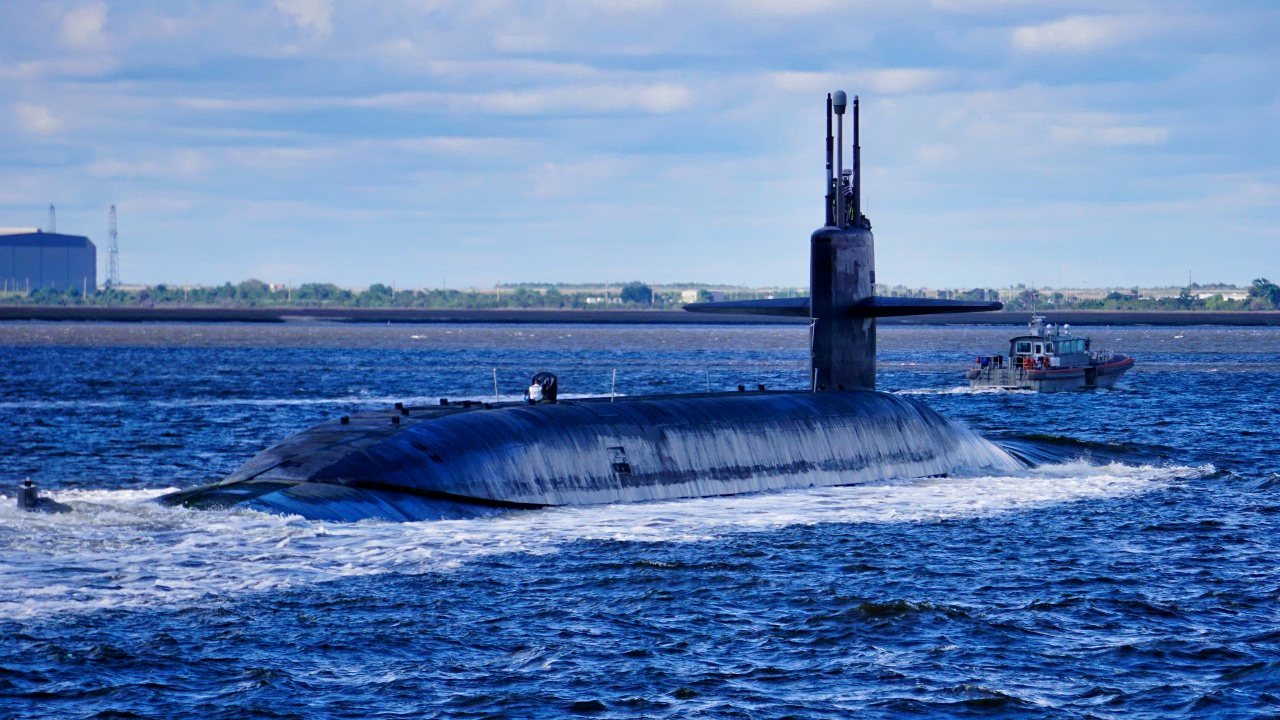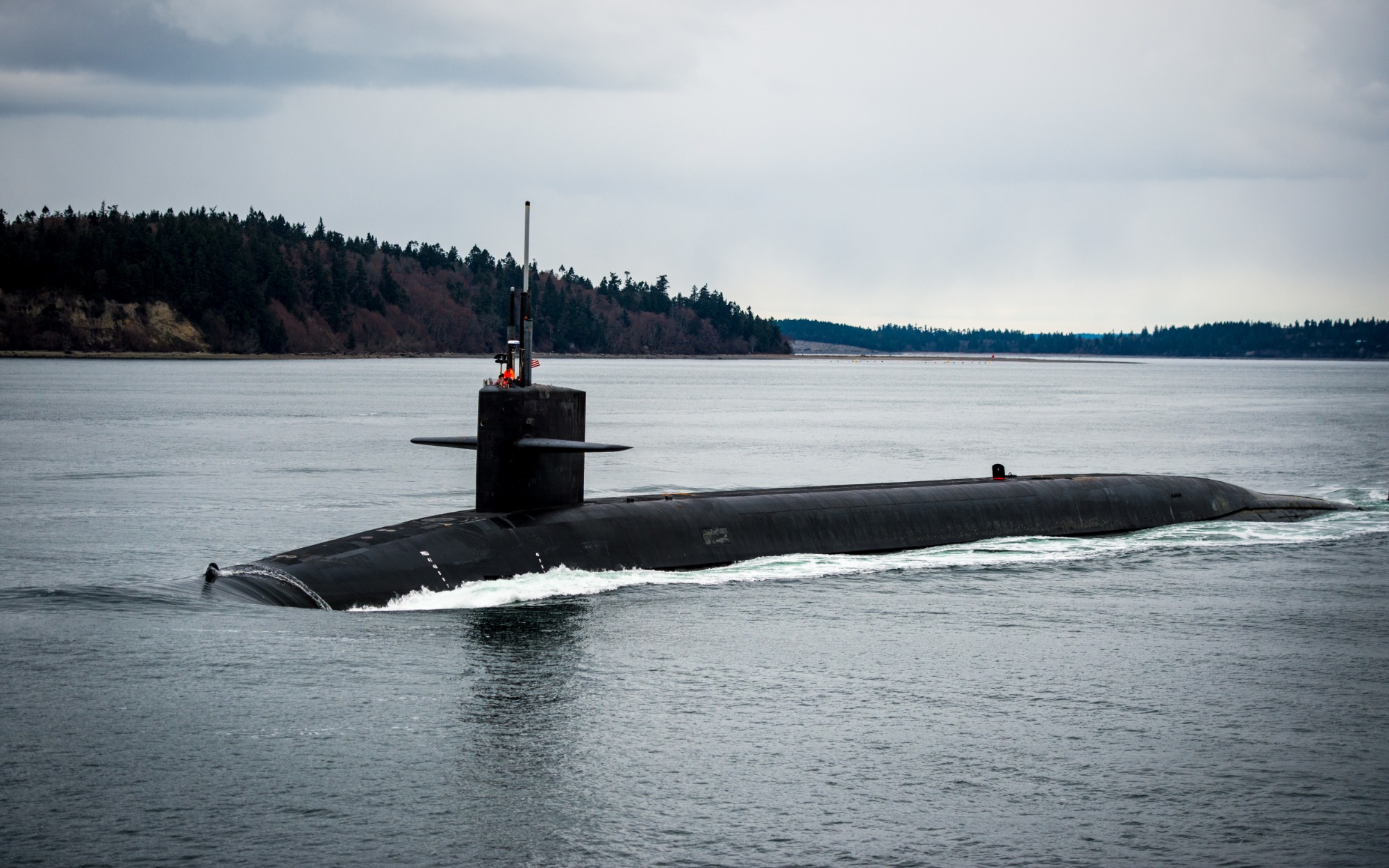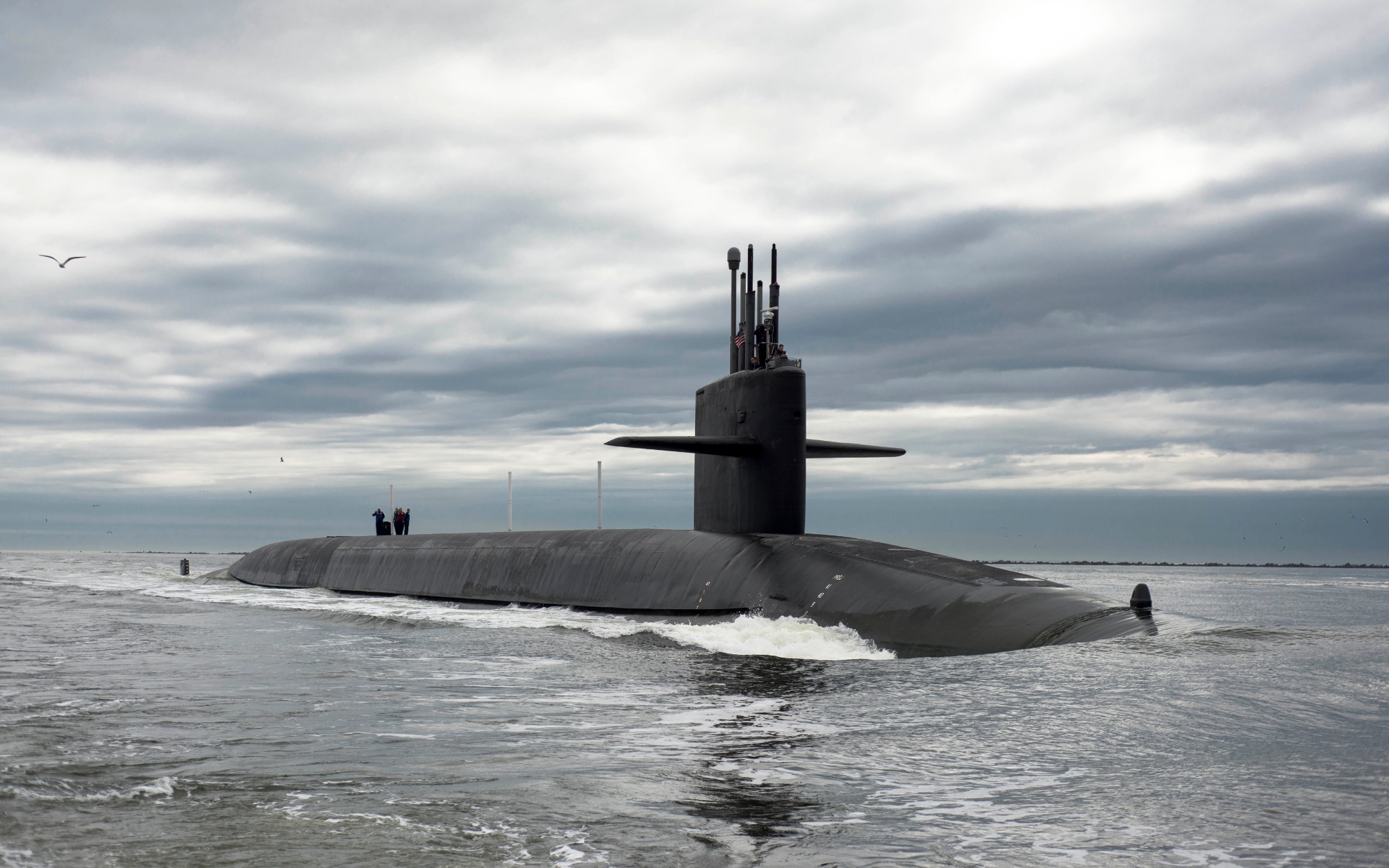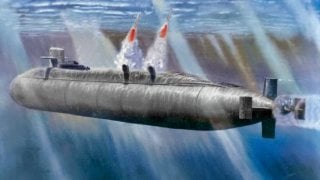The Navy Surprise Surfaced a Ohio-Class Submarine as a Warning to Russia
The geopolitical tension between the U.S. and Russia is escalating, reminiscent of the Cold War but without its stabilizing guardrails. Both nations are deploying significant military assets in each other's regions, with Russia placing warships and submarines in Cuba and the U.S. responding with its own nuclear-powered submarine and aircraft in Europe.
Summary and Key Points: The geopolitical tension between the U.S. and Russia is escalating, reminiscent of the Cold War but without its stabilizing guardrails. Both nations are deploying significant military assets in each other's regions, with Russia placing warships and submarines in Cuba and the U.S. responding with its own nuclear-powered submarine and aircraft in Europe.

-This military posturing reflects deeper conflicts over Ukraine, where American and Russian interests clash. The current situation underscores the need for both powers to reassess their strategies to avoid further escalation and potential conflict.
Geopolitical Chess: U.S. and Russia Engage in High-Stakes Military Posturing
The stupidity of our current era continues to astound. After having successfully, bloodlessly, won the Cold War against Soviet communism, the West appears intent on reliving the worst aspects of it (but without the kind of global institutional guardrails and leader-to-leader exchanges that prevented that conflict from going nuclear).
In the wake of the successful deployment of Russian warships and submarines to Cuba, the United States has reciprocated with the deployment of its own nuclear-powered ballistic missile submarine, a guided-missile cruiser, two naval aircraft—one of which was the so-called “doomsday plane.”
A Return to the Cold War or Something Scarier?
All this is part of the high-stakes diplomatic cat-and-mouse game between the two nuclear-armed powers that now face each other in the killing fields of Ukraine (with that conflict increasingly going global).
Left unsaid, of course, is that the entire cat-and-mouse game over Ukraine was completely unnecessary. Ukraine was never a primary strategic concern for the United States the way that it was for the Russians.
And Moscow was consistent that it would respect Ukrainian neutrality so long as the West did. The moment the West launched a covert campaign to change the Russophilic regime in Kiev into a pro-Western one that would align Ukraine with NATO, all bets were off.

Because the Americans have so overcommitted themselves to the notion of Ukrainian alliance with NATO by pouring tens of billions of dollars and massive amounts of weapons that has only served to prolong the war in Ukraine, Moscow is now seeking to engage in some payback.
They have moved nuclear-powered ballistic missile submarines to Cuba while deploying hypersonic weapons-capable platforms there as well. It’s a clear signal to the Americans: you can mess around in our backyard and we’ll do the same to you in your backyard.
Meddling in Each Other’s Geopolitical Backyards
More importantly is the fact that the Russian flotilla stationed at Cuba is not just about embarrassing the Americans and poking their eye. It’s deeper than that. Russian mercenaries and intelligence operatives have been crawling around Latin America for years.
Since the Ukraine War erupted and America decided to turn that conflict into a proxy war with Russia, the Russians have increased their illicit operations in this region. Currently, the embattled socialist regime of Nicolas Maduro in Venezuela is eying military action against their smaller, oil-rich neighbor of Guyana.
Should Maduro order a military operation against Guyana, he will need the support of great powers, like Russia, because Caracas understands the US Navy will likely attempt to intervene against any Venezuelan military action.
Sure, the Russian force in Cuba is no match for the US Navy in a straight-up fight. But that’s not the point. The goal of Moscow and Caracas would be to delay US military action against Venezuela long enough for Venezuela’s forces to overrun Guyana.

In the process, the US would be humiliated in its own backyard the way that NATO has tried to humiliate Russia in its geopolitical backyard and the Americans would be tied down dealing with a resurgent Venezuela as well as what could end up being a massive refugee crisis in the Western Hemisphere—in the midst of a border crisis along America’s broken border with Mexico.
A Broken World Order Turned to Dynamic Disorder
In this context, then, the Americans have deployed their own nuclear-capable forces to Europe. As Business Insider reported last week, a US Navy nuclear-powered ballistic missile submarine surfaced in the Norwegian Sea. Traveling along with this boat was the “Doomsday Plane” that is charged with coordinating US nuclear strikes in the event of a nuclear war. This sort of thing was completely normal during the Cold War.
But in the post-Cold War era, this is not how things are supposed to be.
What’s more, whereas these moves would have created deterrence among the Cold War superpowers, it appears that such maneuvers by both the Russians and the Americans are only militating the two sides against each other even more.
Thus, the deterrent impact is gone.
Fact is, Russia believes it is in an existential war over Ukraine against what it perceives to be Western imperialism along its borders. Under these conditions, no amount of “signaling” by the Americans will prove sufficient to stop Russia from taking the provocative actions—such as aiding Nicolas Maduro in an attempted invasion of Guyana—that it has set about to take.
All the Americans (and Russians) are doing is ensuring that there is no hope for peace in our time. It is time for the great powers to reassess their interests in Ukraine (and beyond). The great powers need to ratchet things down before everything gets out-of-hand.
Author Experience and Expertise: Brandon J. Weichert
Brandon J. Weichert, a National Interest national security analyst, is a former Congressional staffer and geopolitical analyst who is a contributor at The Washington Times, the Asia Times, and The-Pipeline. He is the author of Winning Space: How America Remains a Superpower, Biohacked: China’s Race to Control Life, and The Shadow War: Iran’s Quest for Supremacy. His next book, A Disaster of Our Own Making: How the West Lost Ukraine, is due October 22 from Encounter Books. Weichert can be followed via Twitter @WeTheBrandon.
All images are Creative Commons or Shutterstock.
From the Vault
Russia Freaked Out: Why the U.S. Navy 'Unretired' the Iowa-Class Battleships
Battleship vs. Battlecruiser: Iowa-Class vs. Russia's Kirov-Class (Who Wins?)


